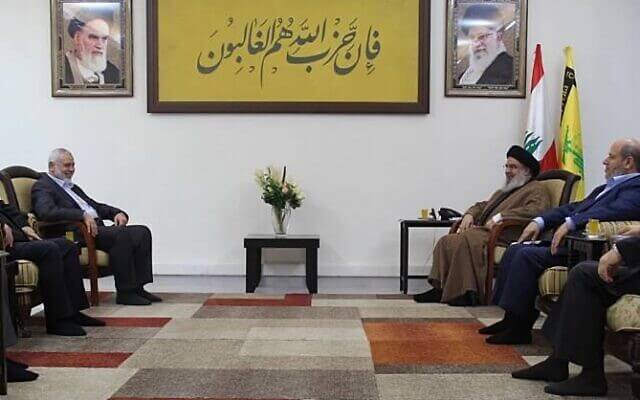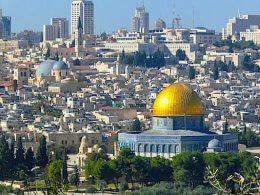On Sunday, Hezbollah leader Hassan Nasrallah and Hamas leader Ismail Haniyeh met in Beirut to discuss collaboration amid escalating violence in Israel, including rocket attacks and terror incidents.
The rocket attacks have been attributed to Hamas and have come from Lebanon, Gaza, and Syria. The meeting focused on the "axis of resistance," consisting of Palestinian, Lebanese, Syrian, and other Iranian-backed terror groups opposing Israel. Saleh al-Arouri, a founding member of Hamas accompanied the delegation, and he is believed to be responsible by Israel for the recent rocket attacks from Lebanon.
On Thursday afternoon, a significant barrage of 34 rockets were fired from southern Lebanon, with 25 of them being reportedly intercepted by Israel's Iron Dome air defense system. Thursdays attacks were the largest since 2006. The attack resulted in at least three injuries and several damaged buildings. In addition, rockets were fired from Gaza towards Israel. These attacks followed two consecutive nights of clashes between police and Ramadan worshipers at the Al-Aqsa Mosque on Jerusalem's Temple Mount.
Hezbollah and Hamas have strong ties, and Hamas has been building a presence in Lebanon with Hezbollah and Iran’ support.
Related Story: Rockets from Lebanon Pummel Israel in Largest Escalation in 15 Years









